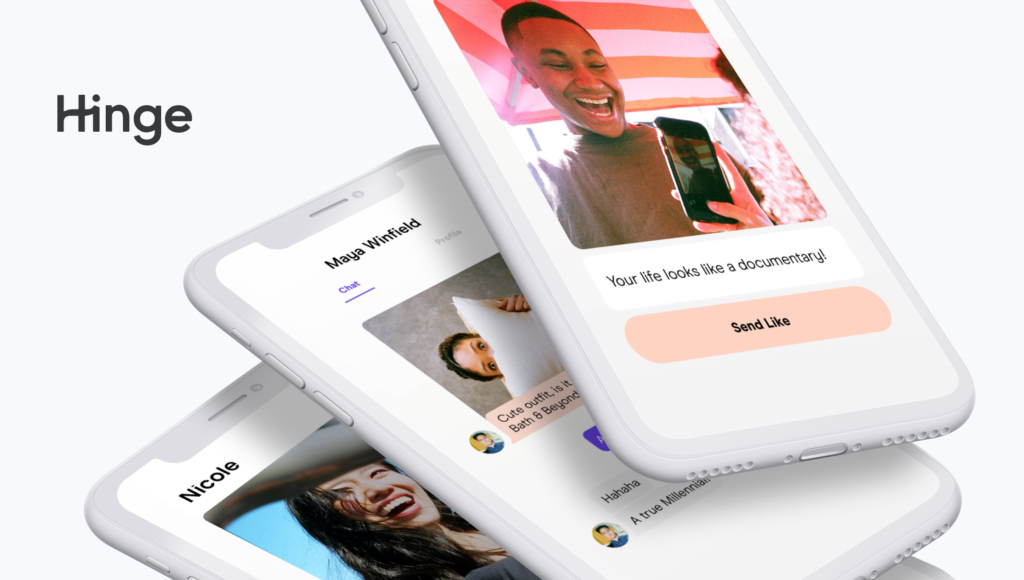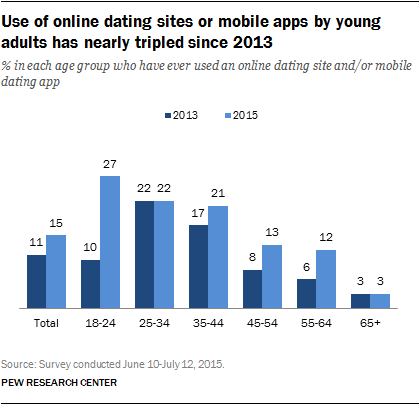Online dating has disrupted long held relationship norms and behaviors from meeting to marriage and cohabitation

Online Dating: Disrupting Long-Held Relationship Norms and Behaviors

In today’s digital age, online dating has revolutionized the way people meet and form relationships. This phenomenon has disrupted long-held relationship norms and behaviors, reshaping everything from the initial meeting to the eventual milestones of marriage and cohabitation. Let’s delve into this transformation and explore the virtues and downsides of online dating.
Changing the Way We Meet
Traditionally, meeting a potential partner involved chance encounters, introductions through common friends, or approaching someone in a social setting. However, the advent of online dating platforms has made it possible to meet people outside of our immediate social circles with just a few clicks.
Online dating has broken down geographical barriers, enabling individuals to connect and build relationships with people from different cities, countries, and even continents. This expanded pool of potential partners offers greater variety and diversity, enhancing the chances of finding a compatible match.
Shedding Stigma and Empowering Individuals

Online dating has also helped dismantle the long-standing stigma surrounding finding love online. Previously, there was a perception that online daters were desperate or incapable of finding a partner through traditional means. However, as more people turn to online dating, this perception is changing.
In fact, online dating platforms have empowered individuals to take control of their dating lives. They offer a greater level of agency, allowing users to set their preferences, tailor their profiles, and choose who they engage with. This shift in power dynamics has given individuals the freedom to explore potential matches in a way that best suits their needs and preferences.
New Pathways to Love and Commitment
One of the most significant disruptions online dating has brought is the alteration of the pathway from initial contact to long-term commitment. Traditional courtship and dating rituals have been replaced, or at least supplemented, by online interactions.
With online dating, the process of getting to know someone is no longer confined to physical meetings. People can now communicate digitally through messaging, video calls, and shared virtual experiences. This expanded communication landscape allows for more in-depth conversations and can foster a deeper emotional connection before meeting face-to-face.
Additionally, online dating provides a platform for individuals to be more intentional about their search for a partner. Users can define their relationship goals upfront, whether it’s casual dating, a serious relationship, or marriage. This upfront communication fosters transparency, reduces ambiguity, and ensures that both parties are on the same page regarding their intentions.
Challenges and Considerations
While online dating has undoubtedly brought positive changes, it is not without its downsides. Privacy concerns, misrepresentations in profiles, and online harassment are some of the challenges individuals may encounter when navigating the online dating landscape. It is crucial to be vigilant and cautious while engaging in online dating, never divulging personal information too soon or disregarding warning signs.
Additionally, the abundance of options on online dating platforms can lead to a paradox of choice. With so many potential matches available, individuals may struggle with decision-making and experience feelings of FOMO (fear of missing out). This paradox can hinder the formation of meaningful connections as people may constantly seek the next best thing.
In conclusion, online dating has disrupted long-held relationship norms and behaviors, transforming the way people meet, form connections, and pursue long-term relationships. While it brings newfound opportunities and empowerment, challenges such as privacy concerns and decision-making complexities also arise. Nevertheless, with proper caution and understanding, online dating can be a valuable tool in navigating the modern dating landscape.
Source: The Virtues and Downsides of Online Dating
Tags
Share
Related Posts
Quick Links
Legal Stuff

